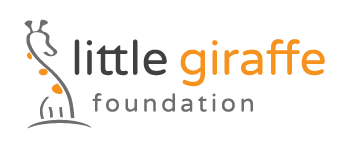
Little Giraffe Foundation
2012 Neonatal Research Grants
After long deliberations, the Little Giraffe Foundation decided to fund 4 projects for 2012, totaling $12,000 – 2 Neonatal Research Grants to forward medical care for premature babies and 2 NICU Support Grants designed to improve the lives of the families and babies in the NICU.
2012 Neonatal Research Grants
Brigham and Women’s Hospital and Harvard Medical School - $5,000 Awarded
Research: Improving weight gain, feeding, and cardiorespiratory outcomes in very low birthweight preterm infants by providing them with a more womb-like environment
Emily Zimmerman, PhD, CCC-SLP and Amir Lahav, ScD, PhD
To examine if providing very low birthweight (VLBW; <1500g) infants with maternal stimulation, consisting of both sounds and vibrations, during their Neonatal Intensive Care Unit (NICU) hospitalization will improve their weight gain, feeding skills, and cardiorespiratory outcomes.
Forty VLBW infants will be randomly assigned to stay in either a Vibro-Acoustic Bed (VAB) or a Routine Hospital Bed (RHB) throughout the course of their NICU stay. Infants in the VAB group will receive maternal stimulation via innovative vibro-acoustic technology. The VAB provides infants with: (1) auditory stimulation of their mother’s voice via micro-audio speakers installed at the bedside; and (2) vibro-tactile stimulation of their mother’s heartbeat via micro-subwoofers embedded within the mattress of the infant’s bed. Infants randomized to the RHB group will receive the standard care and serve as controls.
We hypothesize that exposure to maternal stimulation, consisting of both sounds and vibrations, will provide VLBW infants with the essential womb-like environment necessary to complete their normal maturation outside of the womb and will have immediate short term effects on weight gain, feeding, and cardiorespiratory outcomes. In the long term, our research may increase the potential of sick babies to develop into healthy children, free of disability.
State University of New York, Downstate Medical Center - $5,000 Awarded
Research: Effects of Caffeine on Preventing Periventricular Leukomalacia in Preterm Infants
Hsiu-Ling Li, Ph.D. Assistant Professor of Physiology and Pharmacology
Agnes Perenyi, M.D. Associate Professor of Pediatrics
Joanne Katz, Ph.D. Associate Professor of Physical Therapy
Periventricular leukomalacia (PVL) is the predominant form of brain injury in premature infants and accounts for most of the neurologic morbidity encountered in survivors of premature birth. The innermost space in the brain consists of four fluid-containing sacs, called ventricles. Periventricular zone refers to brain tissue surrounding the ventricles. In developing brains, this area is occupied by neural/glial progenitor cells and nerve fibers that control the body’s muscles and is nourished by numerous thin-walled blood vessels. PVL is caused by a lack of oxygen or blood flow to this area, leading to damages to the nerve fibers and progenitor cells.
Selective depletion of oligodendroglial lineage (OL) progentior cells in periventricular area is thought to contribute to the pathogenesis of motor and cognitive deficits in preterm infants with PVL. Thus, it is of clinical importance to identify novel pharmacological agents to protect OL progenitors from ischemic insults.
Caffeine is widely used in NICU to stimulate respiration in premature infants for its safety and cost effectiveness. Recent studies have suggested a protective effect of caffeine on OL precursors after hypoxic ischemia, but the efficacy may vary depending on the developmental age. Here, we propose to perform a systemic analysis, combining both experimental models and clinical approach to determine the effects and kinetics of caffeine on protecting OL progenitors and preventing PVL.
